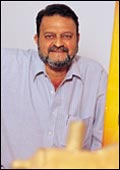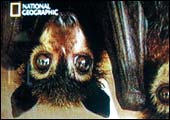|
For
two weeks in September, P&G's vice president (R&D) Larry
Huston and a team of seven PhDs from the US, scoured about 20 labs
in the country, including those of Ranbaxy, Dr. Reddy's, and even
CSIR. His objective: Snap up ideas that can help keep the $43 billion
P&G one of the world's most innovative household goods company.
P&G even has a name for that effort: Connect + Develop. Says
Huston: "We are using this visit to get a better understanding
of the fit that exists between our needs for cooked products, packaging
technologies, and processes, and India's capabilities and assets."
If Huston enjoys his serendipity, it's because
in the past it has led P&G to some interesting discoveries.
For example, by acquiring a newly-developed spin brush from a Chinese
toy company, P&G was able to bring a superior oral care brand,
Crest SpinBrush, to the market without having to spend inordinate
amount of time and money on it. Similarly, by purchasing the know-how
of a hand-held duster developed by a Japanese rival, P&G launched
its Swiffer Duster within eight months. Even in India, Huston found
labs that were doing interesting work, but had no clue about its
potential commercial application.
P&G, which spends about $1.6 billion (Rs
6,900 crore) on R&D annually and has a team of 7,200 researchers,
uses Connect + Develop to accelerate its own process of innovation.
What the initiative does is to connect P&G to some of the best
research labs across the world. Says Shantanu Khosla, Country Manager,
P&G India: "We have a network approach to ideas and innovations."
On his part, Huston sees India as a powerful
node in this global innovation network. But he wants to be choosy
about his nodal labs. Says he: "We have to be careful of the
connections we make, since too many connections and inputs could
overwhelm the capability." That said, if you've got a really
bright idea that can help P&G change the rules of the game,
just drop its folk a line.
-Roshni Jayakar
CHOMP
It Works...Sort
Of
 |
| ITC's Ravi Naware: On a ten-year
plan |
A year after ITC
foods made some serious moves in the market, it's got some good
news and some bad news to report. First the good news: Its marketshare
in the branded wheat flour segment, where it launched its Ashirwad
brand in August last year, has risen to 14 per cent; Minto, which
it acquired from Candico in July last year, has cornered 42 per
cent of the market, compared to 4 per cent earlier; and its Sunfeast
range of biscuits that it launched two months ago, is already getting
good response. The bad news: Its snack food brand Bischips has been
withdrawn from the market, and its ready-to-eat brand Kitchens of
India continues to face an uphill battle against rivals MTR and
Tasty Bite. Of course, the business itself continues to lose money.
But ITC Foods' CEO Ravi Naware is thinking long term. "It will
be eight to 10 years before concrete returns emerge, but we are
confident of changing the face of foods business in India."
Given ITC's deep pockets, it just may.
-Venkatesha Babu
Infotainment
Surge
Discovery and National Geographic get aggressive.
 |
 |
| Infotainment channels: They
are getting more of the eyeballs now |
For
most people, Indian TV implies a staple of big bindis, big tears,
news, and the odd cricket matches. Unfortunately, that's not a very
accurate view. Just ask infotainment channels Discovery and National
Geographic. The former already claims to have the highest viewership
among English channels (not a totally accurate claim given that
it has sizeable Hindi feeds in the north and west), and NatGeo recently
claimed to be the second-highest distributed (after Star Plus) on
Star.
Discovery's MD Deepak Shourie and NatGeo's
MD Zubin Gandevia agree that their growth in viewership was due
to these channels fulfilling a need for "informed entertainment"
and "mind expansion" that no one else offered. Media planners
estimate that the two channels pull in anything between Rs 100 crore
and Rs 150 crore a year, but compared to the Rs 4,500-crore plus
cable and satellite TV advertising, that's small change.
Both Shourie and Gandevia think their revenues
can be significantly increased. And to do that they are planning
huge new shows and events for 2004, with specific focus on India.
The idea: widen viewership. Point out media planners like Sandeep
Vij, President, Optimum Media Solutions (of Mudra): "If they
have to grow, they have to go from infotainment to pure entertainment."
Therefore, Discovery's Discover India programmes
will not just focus on India's past, but also its present, and NatGeo
will soon unveil marketing-based programmes like its reality show
Mission Everest. But will either ever displace the K serials? Unlikely.
-Kushan Mitra
ENRONITUS
L'Affaire SembCorp
 Welcome
to the first Enron-style accounting fraud in India. Beginning this
month, the Singapore-based SembCorp Logistics sacked the top team
at its Indian subsidiary, including the Managing Director Cheng Kong
Meng, CFO Loganatha Prakash, and four regional managers. Reason: The
parent found out that SembCorp Logistics India, a major player in
the logistics industry, had overstated profits to the extent of Rs
38.80 crore between 2000 and 2002, and also bumped up profit figures
for the April-June 2003 quarter by Rs 3.2 crore. External auditor
PWC and internal auditor KPMG Consulting have been sacked for not
detecting the irregularities. An investigation by accounting firm
Deloitte & Touche and lawyers reveals that Rs 7.5 crore may have
been wrongly classified as fixed assets prior to 2002. But the parent
also alleges malfeasance, stating that slick accountants did create
fictitious documents, invoices, and journal entries. A new top team
has been put in place, and a new line of reporting will ensure that
Singapore keeps a sharper eye on Chennai. Will the scam damage SembCorp's
India business? Not significantly. Welcome
to the first Enron-style accounting fraud in India. Beginning this
month, the Singapore-based SembCorp Logistics sacked the top team
at its Indian subsidiary, including the Managing Director Cheng Kong
Meng, CFO Loganatha Prakash, and four regional managers. Reason: The
parent found out that SembCorp Logistics India, a major player in
the logistics industry, had overstated profits to the extent of Rs
38.80 crore between 2000 and 2002, and also bumped up profit figures
for the April-June 2003 quarter by Rs 3.2 crore. External auditor
PWC and internal auditor KPMG Consulting have been sacked for not
detecting the irregularities. An investigation by accounting firm
Deloitte & Touche and lawyers reveals that Rs 7.5 crore may have
been wrongly classified as fixed assets prior to 2002. But the parent
also alleges malfeasance, stating that slick accountants did create
fictitious documents, invoices, and journal entries. A new top team
has been put in place, and a new line of reporting will ensure that
Singapore keeps a sharper eye on Chennai. Will the scam damage SembCorp's
India business? Not significantly.
-Nitya Varadarajan
|
